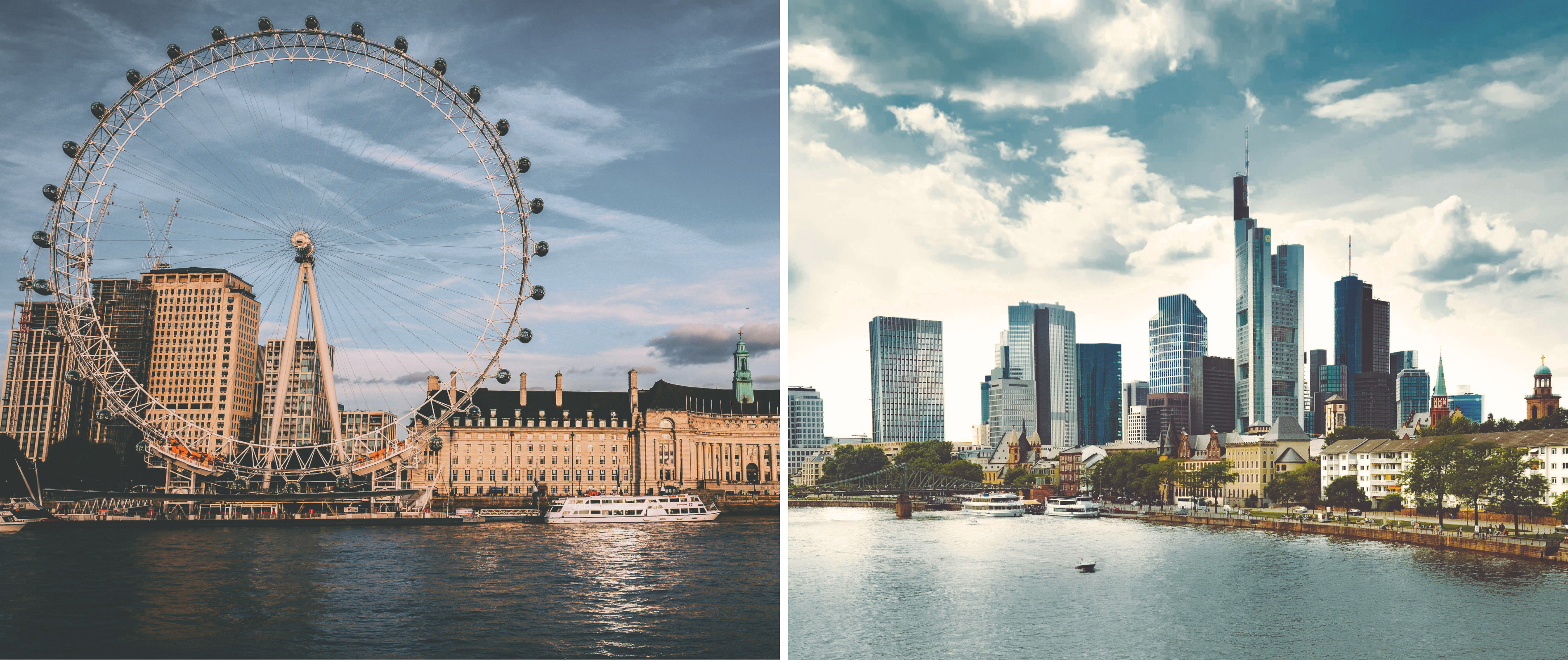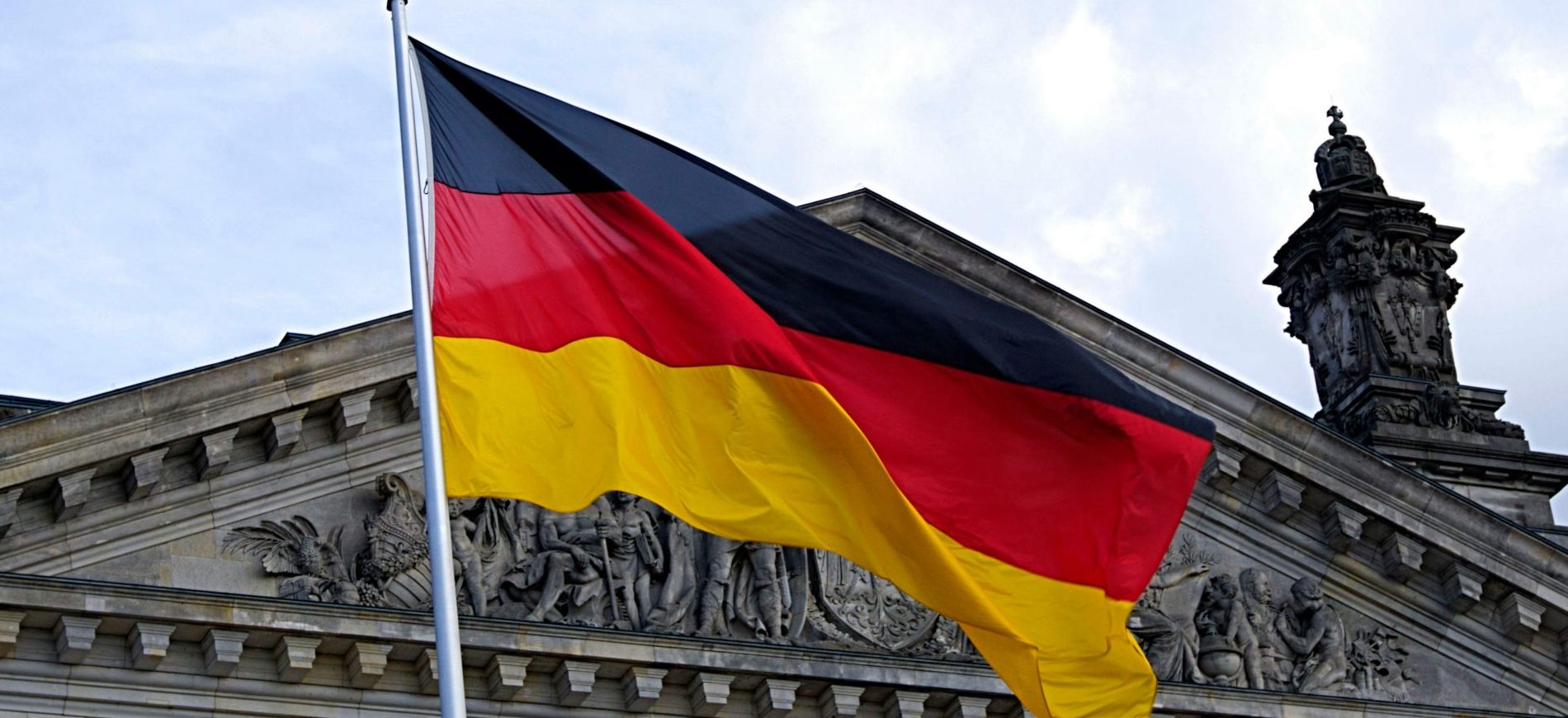
Angela Merkel Upstages Them All. She is tall, blonde and curvaceous with cornflower blue eyes – and yes – she’s a Barbie doll, modelled on the current German Chancellor. Mattel celebrated the 50th anniversary of Barbie with version modelled on German chancellor and she was the highlight of the German toy fair at Nuremburg upstaging the other 70,000 new toys being exhibited. “She’s simply a good role model for girls around the world” said a Mattel spokeswoman.
Germany was a founder member of the EU in 1952 and has been a member of the Schengen Area since 1985. The capital city is Berlin and the currency is the euro. It has the greatest population, and German is the first spoken language for more people in the EU than any other language.
Germany was divided into the Democratic West and the Communist East after the Second World War, and Berlin was divided by the notorious Berlin Wall. This was pulled down in 1989 – and year later, Germany was reunited. Germany has a huge cultural heritage, especially in classical music, being the birthplace of Bach, Beethoven, Brahms, Wagner and others. They also have works by Luther, Goethe, Nietzsche and many others. It is also known for its beers and is the second largest producer of hops in the world.
Although Britain is not a member of the Schengen Area, and therefore customs formalities apply, because we are members of the EU, there is little of consequence to concern the average Briton relocating to Germany.

A maximum number of 5 animals may be imported without prior authorization. You may need further up to date information from the German Embassy
Pets require their own pet passport, microchips, rabies vaccinations within 1 year, but not closer than 21 days from departure, and up to date routine vaccinations. If you intend to bring the pet back to the UK you must ensure the rabies vaccinations are kept up to date.
As the UK is a member of the EU you do not need a permit to live and work in Germany. But you need to register with the town hall within seven days of moving in. If you move to Rheinland-Pfaltz, you have to register immediately. You will need:
Check with the local office as requirements are different in different areas. You have to de-register and reregister if you move to another town. If you want to receive post ensure that your name is on your post box.
After three months you need to have a residence permit and after five years you can apply for a permanent residence permit. (Sooner in some occupations). Your temporary permit lasts one year and can be renewed. A blue card is a special residence permit for highly qualified migrants and their spouses. The permanent residence does allow you to live in Germany permanently, but you have fewer rights than German citizens. To obtain these after eight years you can apply to be naturalized.
German is the official language of Germany; over 95% of the country speaks standard German or German dialects as their first language. There are also recognised minority languages: Northern Low Saxon, Sorbian, Croatian, Romani and Danish.
Germany has a large immigrant population, so Turkish, Kurdish, Polish, Greek and Spanish are some of the languages you may meet.
In school most children are taught English as their first foreign language, followed by French and Latin. Often a third language is offered Russian, Italian, Spanish, Polish, Dutch, classical Greek, and others.
The great thing is that if you have children they do seem able to absorb languages easily, and unless your German is very good they will soon be translating for you.
You can buy a house in Germany without restrictions. Around half the population buy their homes and the other half rent accommodation.
The average cost for a small apartment is around 60,000 euro,(£48,500) a larger one comes to around 250 euro (£202,500), but prices in Berlin are at least 50% higher – even more in Munich.
House prices and rents have been rising rapidly in Germany – though who can say what the future holds. If you own your house for less than ten years the capital gains tax runs at 25%, so unless you plan for a longer stay you should consider renting. But it can be almost impossible to find rented accommodation in Berlin, unless you know someone, and you may have no choice but to take at least a three year lease.
It is worth spending quite a time house hunting, as most people tend to stay in the same home for years. Once you’ve found your home it can take just over a month to complete the sale. These are the usual steps in buying a house:
You may need a translator as you should sign nothing unless you are certain you understand it. You can find a list of translators, and English speaking lawyers at the British Embassy.
You will also need to put down a large deposit – up to 40% at times, and you may be asked for proof of regular savings as well. It usually costs more than you expect, so check your finances carefully.
You need to register with one of the gesetzliche Krankenkassen (state health insurance companies). They will issue you with a health insurance card, make sure you take it with you whenever you visit a doctor or dentist. Ensure that you are treated by a state-funded healthcare provider. The GPs and dentists usually show a sign saying Kassenarzt or Alle Kassen, this means they are under the state system.
If you are planning to work between two years and five years in Germany, your employer should contact HM Revenue and Customs (HMRC) for the following forms:
Your EHIC will cover you in Germany and other EU countries, but you may be asked to pay for your treatment in advance and then ask for a refund from the UK. For most German health services you pay a standard fee of €10, usually in cash. This is non-refundable in Germany but, again, you may seek reimbursement in the UK. So remember to keep all your receipts. This is for temporary stays in EU countries and well worth having.
Prescriptions: medicines and bandages prescribed by your GP can be obtained from any pharmacy in exchange for the prescription. You will have to pay 10% of the cost subject to a minimum charge of €5 and a maximum charge of €10. These costs are not refundable. For minor drugs and medicines, such as painkillers and cough mixtures, you may be charged the full amount. Children under 18 do not have to pay a fee for prescriptions.
There are strict regulations about how much and what kind of medications can be imported to Germany.
You are only covered by your EHIC or German health insurance card for an ambulance in emergencies or if a doctor orders it.
It is advisable to KEEP YOUR OWN ACCURATE AND DETAILED RECORDS. One good thing for us is that many doctors speak good English and are happy to practice it.
The NHS website gives excellent advice and up to date information.
The European Free Movement of Workers agreement means you can live and work in Germany without a visa or work permit.
Your ability to find work depends upon our language skills. English is a bonus, but it helps to be fairly fluent in German. If you are moving for employment, the administrative details may be handled by the employer. It is wise to get a written contract if possible. A verbal contract gives little protection.
Starting a business in Germany is relatively straightforward. The formalities are similar to those in the UK. There are also no restrictions on the repatriation of profits. In most German cities, the Chamber of Commerce provides English-language advice on setting up a business:
The German Ministry for Economy and Technology offers an English language online service for foreigners wishing to start a business in Germany. This step-by-step site advises on start-up procedures, business planning strategies and management techniques. You can also apply for state aid can, although previous employment in the country is required for at least a year to be eligible for assistance.
The UK state pension is valid in Germany, but UK pension credit is not. This is a complex subject and you need to inform the IPC (International Pension Centre) to prevent problems with your pension payments. (Phone 0191 218 7777)
If you receive a UK state retirement pension or long-term incapacity benefit, you may be entitled to state-funded healthcare paid for by the UK. You’ll need to apply for form S1 from the International Pension Centre, and ask for the up to date advice to ensure you receive your full pension.
Germany does have a double taxation agreement with Britain, so you shouldn’t be charged tax in both countries – at least for the full amount – but every case deserves to be checked carefully before you move. You will also need to register your S1 with the German Health Insurer – this entitles you to an EHIC issued by the UK, this allows access to medical care in other EEA countries – including Britain.
The German transport system is efficient and comprehensive. Major towns are well served by buses and trams and in some cases a metro. New light rail systems known as Stadtbahn are operating in some cities. They are similar to the underground, but travel more above ground in the suburbs and has absolute right of way, so they are faster than trams, and run about every 10-20 minutes.
A single ticket is valid for transfers to other trains or buses needed to complete your journey, within a certain time.
Public transport in Germany is usually safe, even at night, but pickpockets are around, especially during peak periods. At night, you should ride in the car nearest the operator. There are emergency telephones (Notrufsäule) in every station and on board most trains, and police make frequent patrols. Several cities also have special call boxes at stations or on-board trains where you can arrange for a taxi to complete your journey.
The German autobahn is one of the last places where you can drive as fast as you like – although some areas do now have speed limits.
Winter tyres or all weather tyres are required in winter. Snow chains may be legally required if there are signs. A 50 Km/h speed limit applies to vehicles with snow chains attached
The legal blood alcohol limit is 0.5 grams of alcohol per litre of blood. A driver’s insurance becomes void if they cause an accident while under the influence of alcohol or drugs, and also if an unrestrained dog is involved.
You may not wash your car in a public place unless it has a designated sign. Some Federal States determine which days you may legally wash your car.
Documents you MUST carry
Equipment you MUST carry
Forbidden
Culture in Germany is wide ranging and can be found even in small towns. Theatre, museums, orchestras are all there, together with exhibitions, films and shows. Making your choice is the hardest part. The local papers and Tourist Information Centres are good sources of information, as are the city’s web pages. There are also many small art events in pubs – your friends will be able to tell you where.
In summer the German Beer Garden is well renowned, where you can laze the long evenings away. There are beer festivals and street festivals and festivals on winter as well. They are well worth going to. Germans are keen on clubs – over 60,000 are registered in Germany, many are sporting in origin. If you can find a club to join you will meet like minded people. It is an advantage if you speak German, though English might suffice in urban areas.
Hiking, cycling and skating are all popular, and there are some beautiful areas to explore, together with castles and forts there is much to see, and a great history to delve into. You will find many Germans are health conscious and enjoy sports like mountain climbing, especially from Munich. The Bavarian Alps also provide some skiing. In fact, Germany has won more Olympic medals than any other country except the USA.
There are plenty of dating sites for Germany – just take precautions with new dates in any foreign country. At least you might get a guide for the many take-away places in the cities.
National Holidays
Common Local holidays
Germany has national Holidays, local holidays and also Silent Days, which means that in some regions of Germany music or dance events are prohibited. In the above table of holidays, the days without explanation are national holidays.
There are many sites where you can get information about expat clubs, news and communities. These three sites will give you a taste of what is available.
Although Germany is a well ordered country – queuing seems to be impossible. You push and shove your way to the front of the mob and hope to get served.
 Is Germany or the UK the Best Choice for Expats?
Is Germany or the UK the Best Choice for Expats?Is Germany or the UK the Best Choice for Expats? Choosing between Germany and the UK as your…
 Is There a Nursing Shortage in Germany?
Is There a Nursing Shortage in Germany?Is There a Nursing Shortage in Germany? Germany is facing a critical nursing shortage, a situation that has…
 Munich vs Berlin: Where to live in Germany?
Munich vs Berlin: Where to live in Germany?Munich vs Berlin: Where to live in Germany? Choosing between Munich and Berlin depends significantly on your personality…
 My Life in Germany: Daily Life in Berlin
My Life in Germany: Daily Life in BerlinMy Life in Germany: Daily Life in Berlin My daily life encompasses the essence of the explorer and…